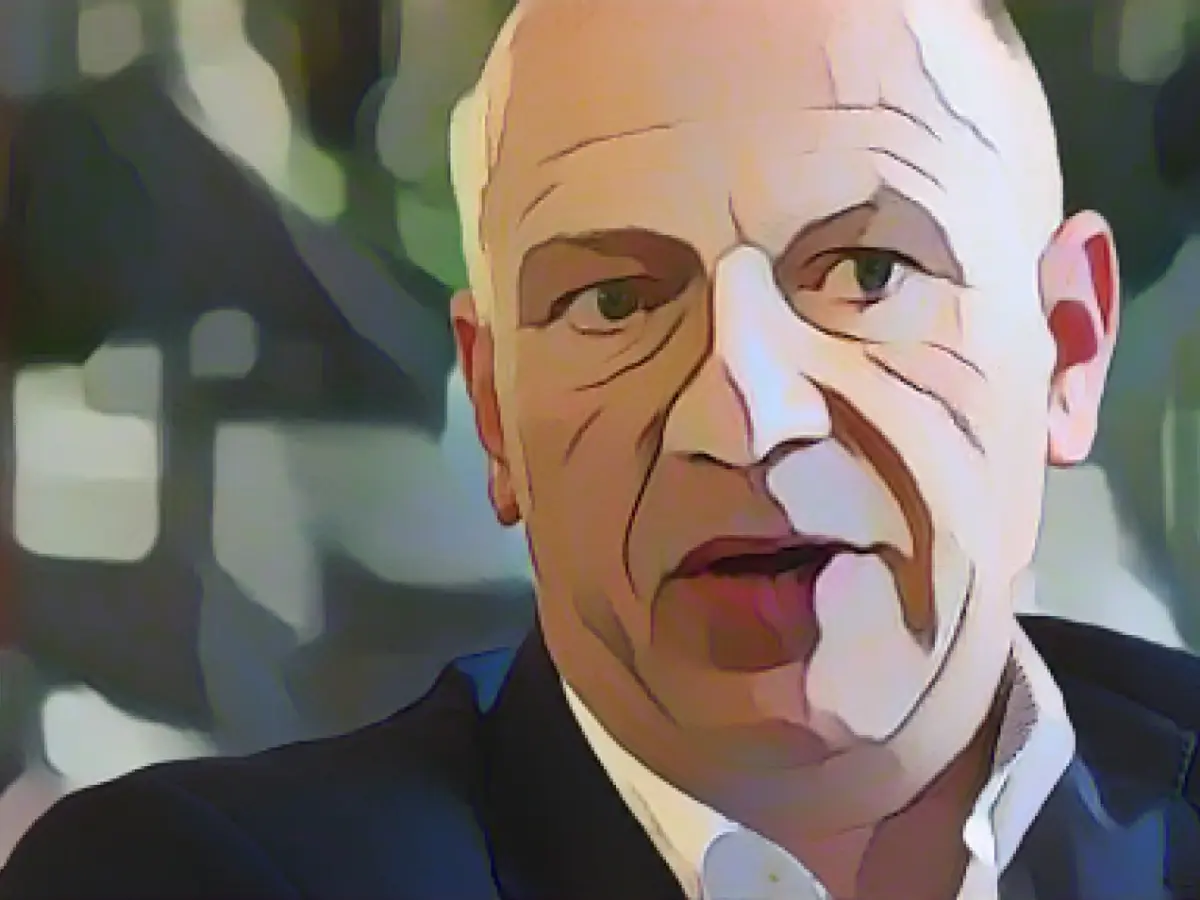Senate - Wegner in favor of maglev lines in outer districts
Berlin's Governing Mayor Kai Wegner advocates better connections to the outer districts by maglev train. He sees no need for a line to the capital's BER airport. "The fact is: we need a local public transport rail service in the outer districts. Magnetic levitation technology could actually be very helpful here," Wegner told the German Press Agency. "When I'm out and about in the outer districts, I hear a lot of positive reactions to this idea: Wow, we can imagine that here too."
Wegner sees no need in the city center
He is not interested in filling the whole of Berlin with magnetic levitation technology. "We have a very good range of subway and other public transport services in the inner S-Bahn ring," said Wegner. Here, the frequency needs to be further reduced. "And that is problematic given the current staffing situation at BVG," said Wegner. "We must and will work on this."
"People in the outer districts need a connection to the rail network. Connecting these areas is difficult," said Wegner. "Conventional rail networks will not work everywhere for decades, as would actually be necessary." It is often not possible at all or involves enormous costs. "To make it possible, we have to break new ground." This starts with rethinking when it comes to solutions for Berlin.
The maglev train could open up new districts
"We also need to open up districts that have not yet been developed. I can immediately think of a few areas where maglev technology could provide real relief," said the CDU politician. "If you build a maglev train at three, four or five stations there and then connect it to an underground or suburban train station, many more people could travel to work by public transport." In this way, car traffic could also be reduced - "a win-win situation for everyone" in Wegner's view.
"The advantage of magnetic levitation technology is, of course, that we could also connect the growth region around Berlin to existing rail links much more quickly and cheaply," he said. "There would be no need to dig deep tunnels that cost a lot of money."
Transport administration should start a feasibility study
First of all, a feasibility study is needed. "Are there routes that are possible? That will then be investigated," said Wegner. "Transport Senator Schreiner will drive this forward together with the VBB. Then we'll see." Wegner sees no need for the route to the capital's BER airport. "As a coalition, we have said that we want to extend the U7 from Rudow. That has priority for now."
Wegner is critical of the discussion on the topic so far. In November, CDU parliamentary group leader Dirk Stettner brought up the idea of a test route for the maglev train in Berlin, but this provoked a lot of opposition.
Wegner defends maglev against criticism
Not only the opposition and the Association for the Environment and Nature Conservation rejected the idea. Transport researchers and the government partner SPD also expressed skepticism. "We shouldn't always reject innovative ideas straight away. I find it very exciting when we talk about modern forms of mobility that are used in other countries around the world - technologies from Germany in megacities," said Wegner. "Unfortunately, we ourselves often don't even have the courage to think about it. I think that's wrong."
He is particularly surprised by the criticism from environmental associations and the Green Party. "The maglev train is a very quiet means of transportation and also very environmentally friendly. It would also be possible to build high-speed cycle paths directly beneath it. Something is possible."
Read also:
- A clan member is punished here
- Traffic lawyer warns: Don't talk to the police!
- Will he be convicted as Jutta's murderer after 37 years?
- He also wanted to kill his cousin
- Kai Wegner, the Governing Mayor of Berlin, believes magnetic levitation technology could significantly improve public transportation in the city's outer districts.
- In the inner city, Berlin already has a robust public transport network, including subway and S-Bahn services, which Wegner thinks should focus on frequency improvements rather than implementing maglev technology.
- Wegner sees a need for better connections between the outer districts and the rail network, as conventional rail systems may not be feasible or cost-effective in those areas for decades.
- The magnetic levitation train could potentially open up underdeveloped districts in Berlin, providing relief to commuters and reducing car traffic, according to Wegner, the CDU politician.
- The advantage of magnetic levitation technology, as Wegner sees it, is its ability to connect the growth region around Berlin to existing rail links more quickly and cost-effectively than traditional methods, such as digging deep tunnels.
- To determine if maglev lines in the outer districts are viable, Wegner suggests conducting a feasibility study to identify potential routes and assess their feasibility.
- Critics have raised concerns about the cost and practicality of implementing a maglev train in Berlin, but Wegner emphasizes the importance of considering innovative ideas in the realm of modern transportation and mobility, especially when considering their applications in megacities worldwide.
Source: www.stern.de








